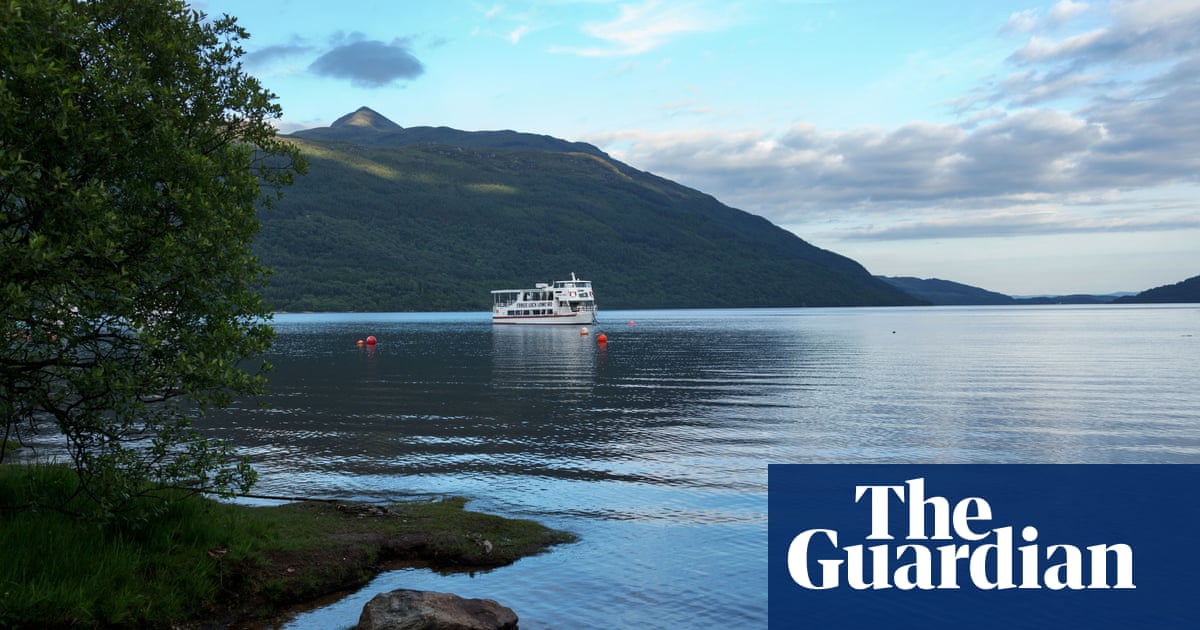Proposals by the theme park operator Flamingo Land to build a mega-resort on one of Scotland’s best-loved shorelines, on Loch Lomond, have been rejected, prompting celebrations among local people at the conclusion of a “David and Goliath” planning battle.
The Lomond Banks development, which would have included two hotels, more than 100 lodges, a waterpark and a monorail, had encountered fierce opposition, first from the village of Balloch, on the south-west shore of the loch, and then across Scotland, since it was first proposed in 2018.
The Loch Lomond and Trossachs National Park Authority board announced its decision on the proposal on Monday evening after a packed public hearing at the parish church, a venue chosen to accommodate as many local people as possible.
Representatives of Lomond Banks had said the development would result in significant economic investment for the area and generate up to 200 jobs. But the board unanimously rejected the scheme after what it described as a “thorough, robust and transparent” process, citing concerns about flood risk, the loss of areas of ancient woodland and conflict with the national park’s primary aim of conservation.
Ross Greer, the local Scottish Green MSP who has galvanised community objections, said he was delighted with the decision. “This is a huge victory for my Balloch constituents and for our long-running campaign to save Loch Lomond,” he said. “Residents have been united against this daft plan from the start, stepping up to defend one of Scotland’s iconic landscapes. After almost a decade, this is the result the community and campaigners deserve.”
During the five-hour hearing, the Scottish Labour deputy leader, Jackie Baillie, whose West Dunbartonshire constituency includes Balloch, told the board she was “not convinced the economic benefit outweighs environmental impact”, while Lynne Somerville, of Balloch community council warned: “We must not sacrifice the very essence of Loch Lomond.”
The company behind the proposals, which also runs the Flamingo Land theme park and zoo in Yorkshire, first submitted the plans in 2018. After immediate local opposition and an online petition that garnered more than 55,000 signatures, it withdrew the initial plans, but in 2020 it returned with an updated £40m proposal.
Greer said: “The single biggest issue people had was the sheer scale of the development. Local residents are already struggling with visitor numbers and there was acute concern from local independent businesses that they would be displaced.”
The Scottish Greens helped locals navigate the “daunting” planning process and drafted standard objections for them to personalise, with more than 150,000 people objecting to the latest proposal, believed to be the largest number of planning objections ever.
Greer added: “What has been essential to this campaign is being able to turn it into a national issue, and local people took so much strength from organisations like the Woodland Trust, the National Trust, the Ramblers Association coming out in support of them.”
There was anger in April when West Dunbartonshire council did not oppose the development, but later the park authority recommended against approval.
Greer said: “This has been one of those classic David and Goliath battles from the start, with the small community of Balloch up against this very well-funded developer who stretched out the process for a decade.”







